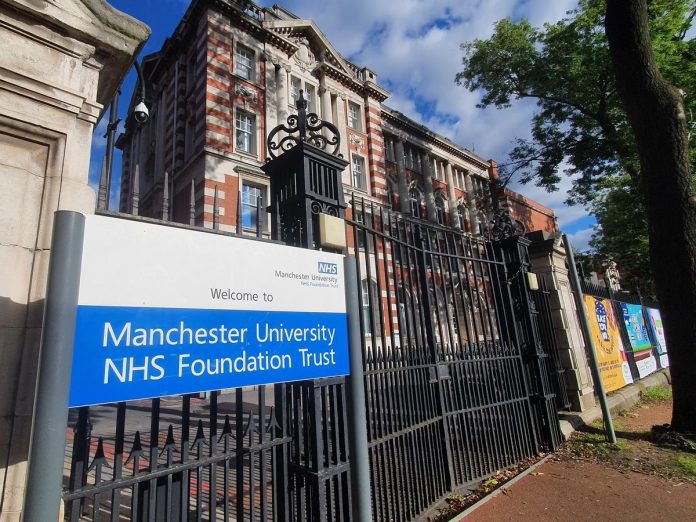The British Social Attitudes Survey has found a record low satisfaction with the NHS at just 24% satisfied while Public satisfaction with social care has dropped to just 13%
However despite the low levels of public satisfaction, a large majority of the public still support the principles of the NHS while 48% of the public would support the government increasing taxes and spending more on the NHS.
The survey by the Kings Fund found that Public satisfaction with the NHS and its services is now in uncharted territory.
The past few years have seen unprecedented drops in overall satisfaction. Since 2020, satisfaction has fallen by 29 percentage points.
For the first time in the survey’s history, less than a quarter of the public say they are satisfied with the NHS overall, and satisfaction with individual NHS services is at record lows.
The three top reasons for dissatisfaction were that there are not enough NHS staff, the government doesn’t spend enough money on the NHS, and it takes too long to get a GP or hospital appointment.
Regarding social care, 13% of respondents said they were satisfied with social care.
This is the lowest level of satisfaction recorded since the survey began. 57% were dissatisfied with social care.
The top reason for dissatisfaction with social care was pay, working conditions and training for social care workers not being adequate , closely followed by people not getting all the social care they need (56%) and there not being enough support for unpaid carers.
As we approach an election in 2024, low levels of satisfaction are now more consistent across the political divide than in previous years when public satisfaction had dropped.
In in the years leading up to the general election in 1997, when satisfaction dropped to 34%, Conservative supporters were consistently significantly more satisfied than Labour supporters.
In 2023, Conservative supporters reported only marginally higher levels of satisfaction than Labour supporters (29% and 24% respectively) and levels of dissatisfaction were similar across supporters of both parties.
The survey also measures public opinion on specific NHS services. The think tanks’ analysis reveals that public satisfaction with GP services – historically the service with the highest levels of public satisfaction – now stands at 34%, the lowest level recorded since the survey began. Since 2019, satisfaction with GP services has fallen by 34 percentage points.
Satisfaction with NHS dentistry has now fallen to a record low of 24%. Public satisfaction with inpatient services is at a historically low level (35%) as is satisfaction with outpatient services (44%). 31% said they were satisfied with A&E services, up 1 percentage point on the previous year.
Dan Wellings, Senior Fellow at The King’s Fund said:
‘These results are depressing but sadly not surprising. The NHS has seen no respite from the issues that have led to an unprecedented downward spiral in public satisfaction in recent years.
‘With the health service increasingly unable to meet the expectations and needs of those who rely on it, public satisfaction with the NHS is now in uncharted territory. The size of the challenge to recover it is growing more difficult with each passing year. Ahead of the upcoming general election, political leaders should take note of just how far satisfaction with this celebrated public institution has fallen.
‘The public are clear that they want shorter waits for care, better staffing levels and more funding. Despite the challenging economic circumstances, our analysis suggests that one in two people may be prepared to pay more for the NHS through taxation, especially those with the deepest pockets.’
Jessica Morris, Fellow at The Nuffield Trust said:
‘The next government will inherit an NHS with a record low level of satisfaction with the way in which it’s running. It is worrying how consistent this is across different NHS services, with inpatient, outpatient, dentistry and GP services reporting record low levels of satisfaction. As we approach a general election, political parties should be frank and realistic about the challenges ahead of them if they are to turn this situation around.
‘Despite such low levels of satisfaction, the public continue to back the principles underpinning the NHS. The public has not fallen out of love with the idea of a publicly funded, free at the point of use NHS, but they are losing confidence that it will support them and their loved ones in the best possible way when they need it.’
Responding to the findings of the latest British Social Attitudes survey, Chris Hopson, Chief Strategy Officer at NHS England, said:
“Whilst these findings reflect the sustained pressure and disruption facing NHS services last Autumn, it is extremely welcome to once again see overwhelming public support for the founding principles of the NHS.
“Over the last 12 months as the NHS has continued to recover from the pandemic, frontline services have responded to significant increases in demand, with October seeing the most A&E admissions since January 2020 and GP teams delivering 53 million more appointments last year compared to pre-pandemic levels. Coupled with the impacts of a year of strike action, this has affected the experiences of some patients, which we know has been very frustrating.
“However, thanks to the hard work of staff, NHS teams have delivered more elective activity in 2023 than in any other year since the start of the pandemic, with over 17.3 million people treated. It is also encouraging to see a slight increase in public satisfaction with emergency care services over the surveyed period.
“While there is still much more to do, the NHS’s plans to recover access to emergency, primary and dental care and reduce cancer, ambulance and elective waiting times are helping the NHS to deliver improved care for patients.”







